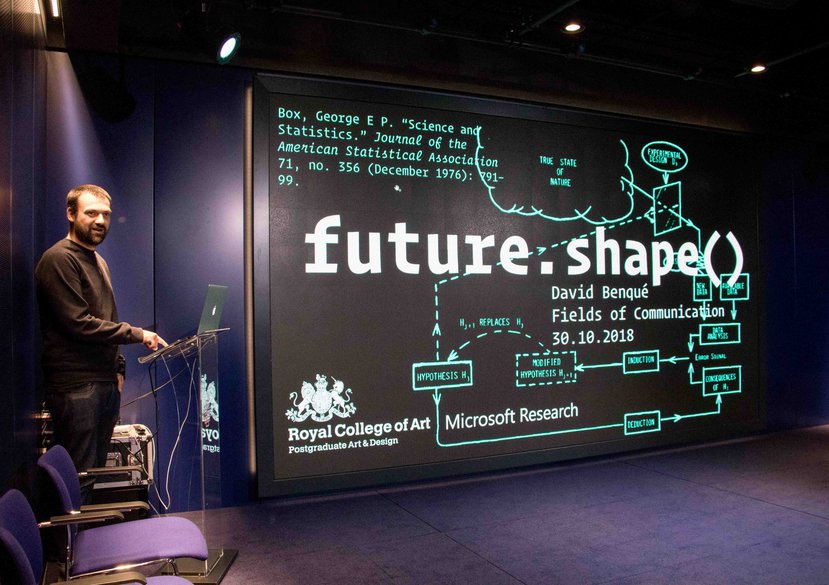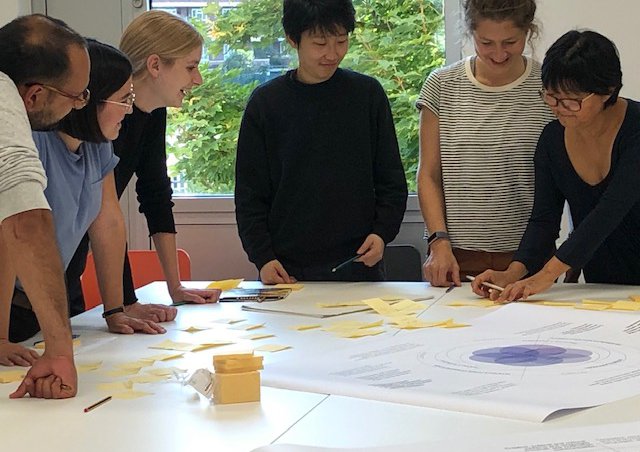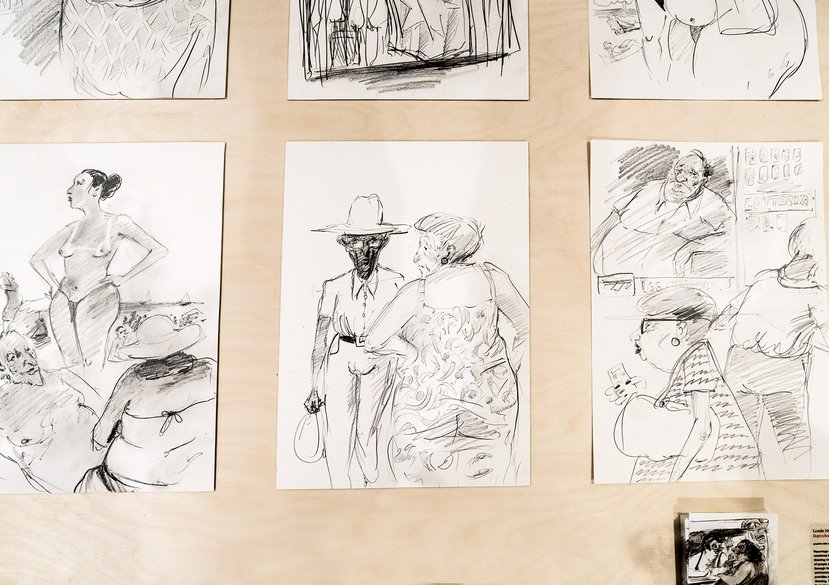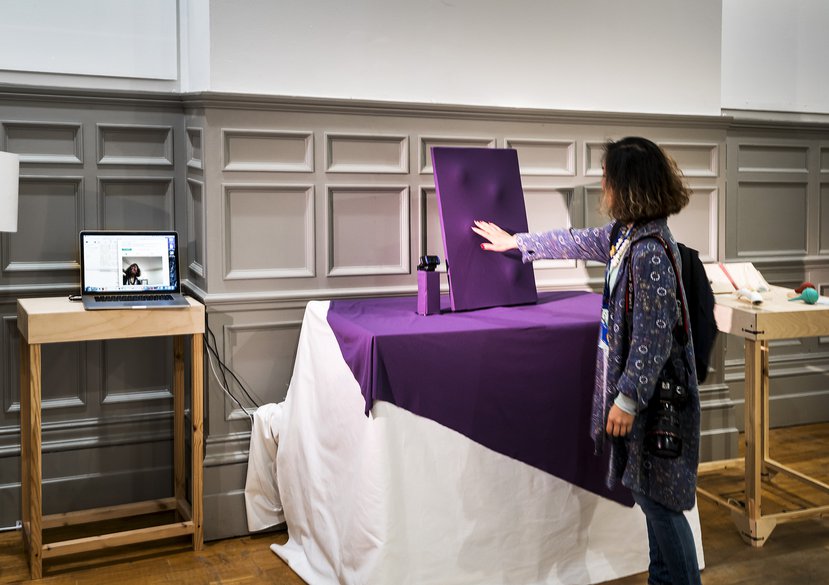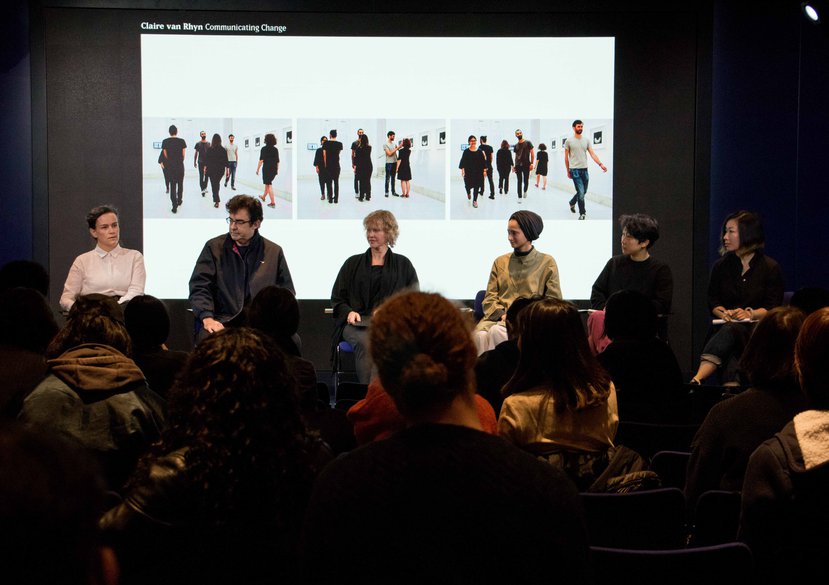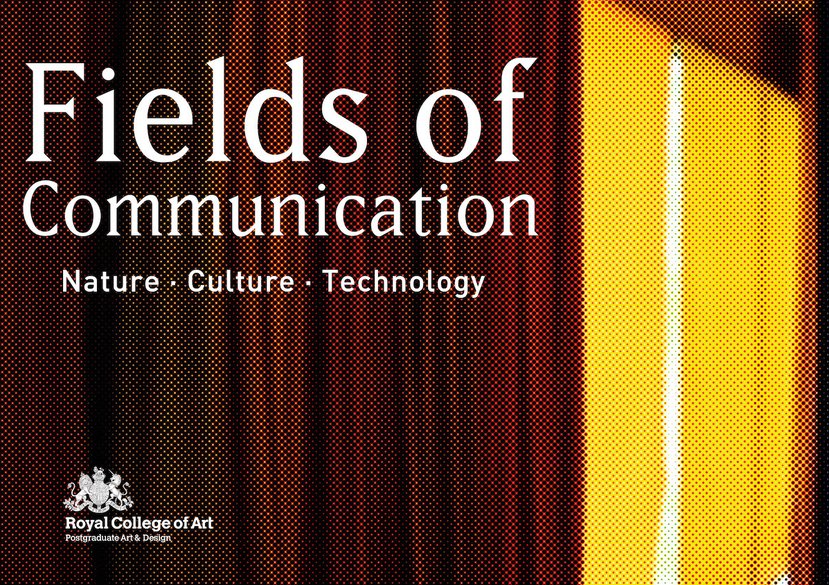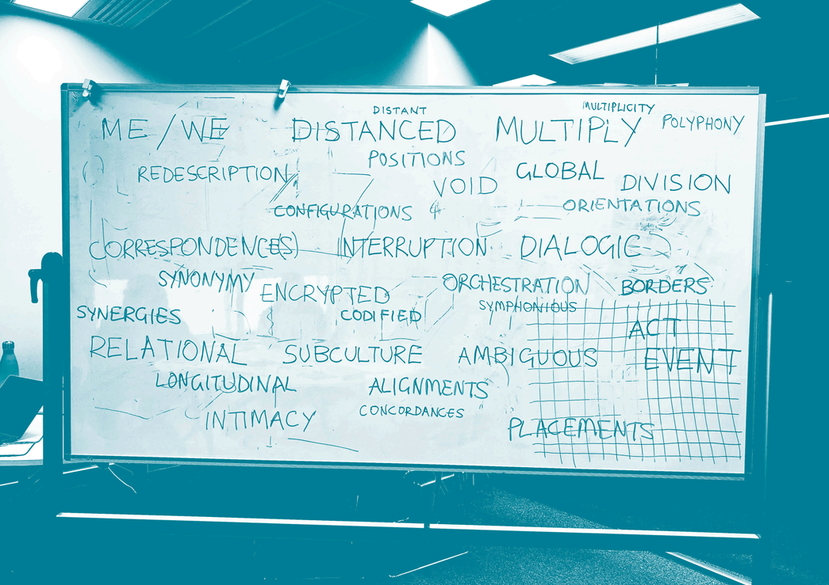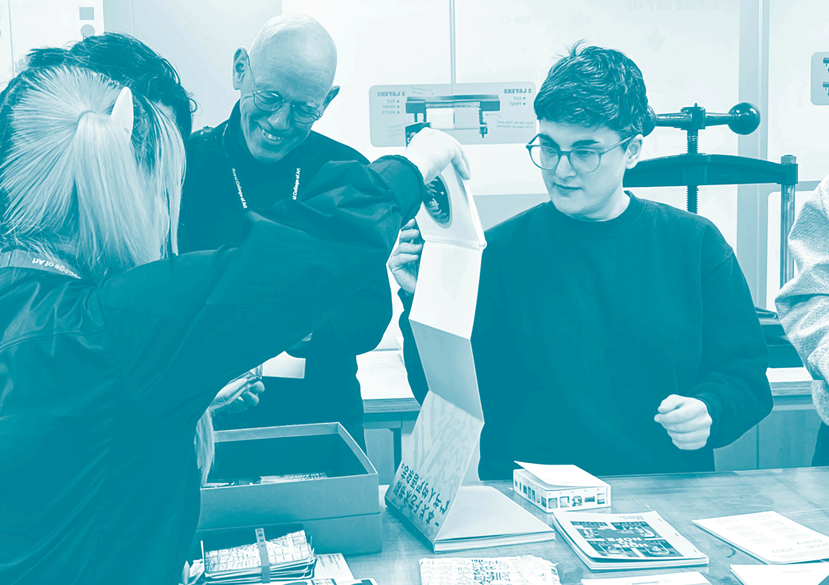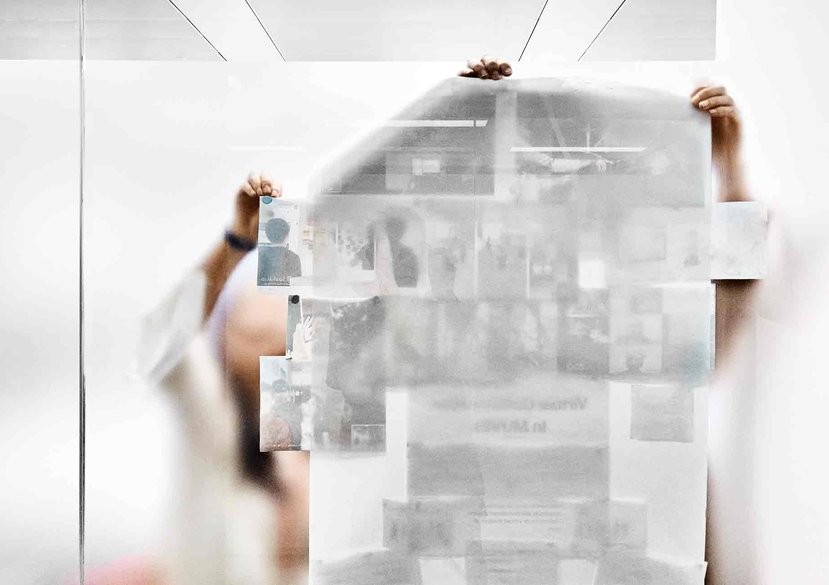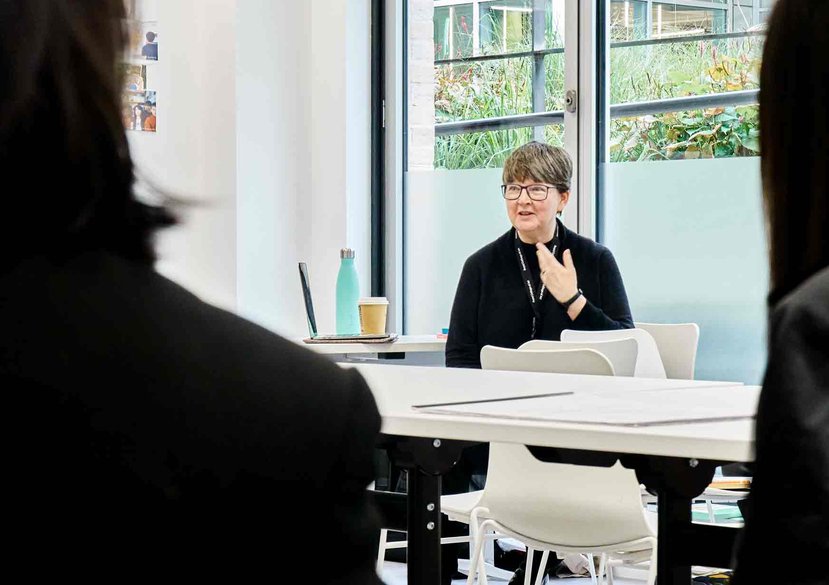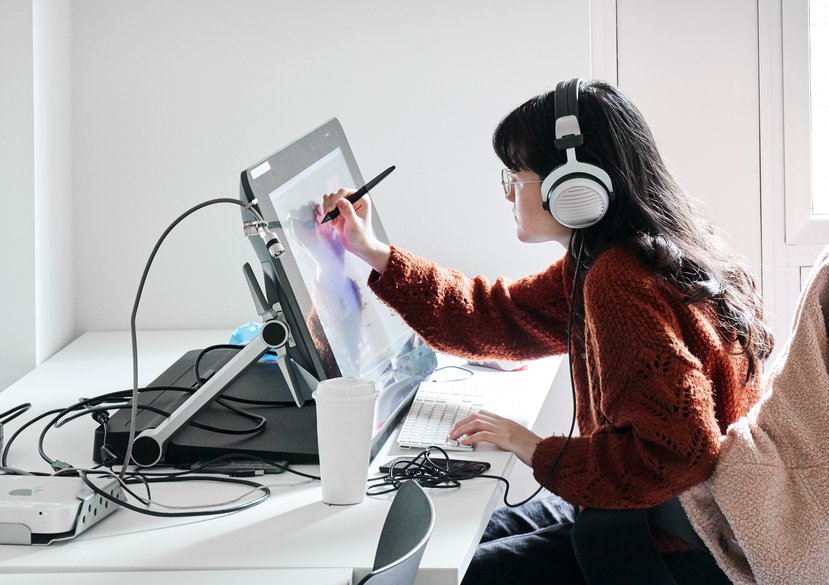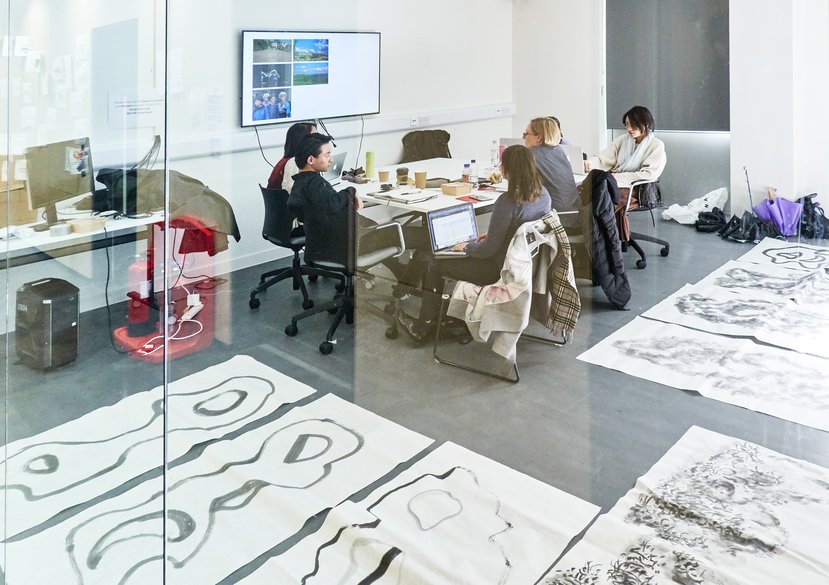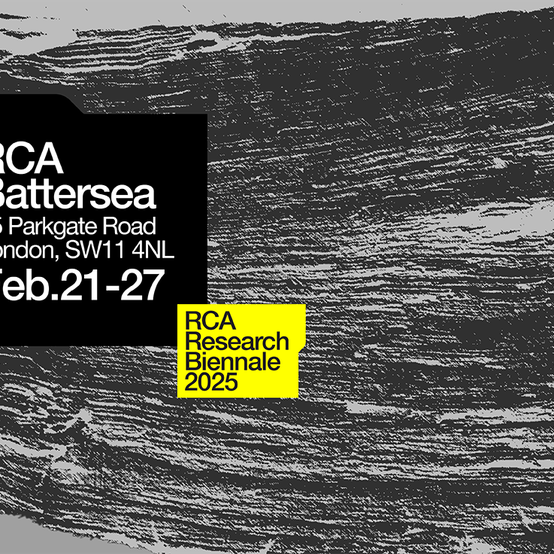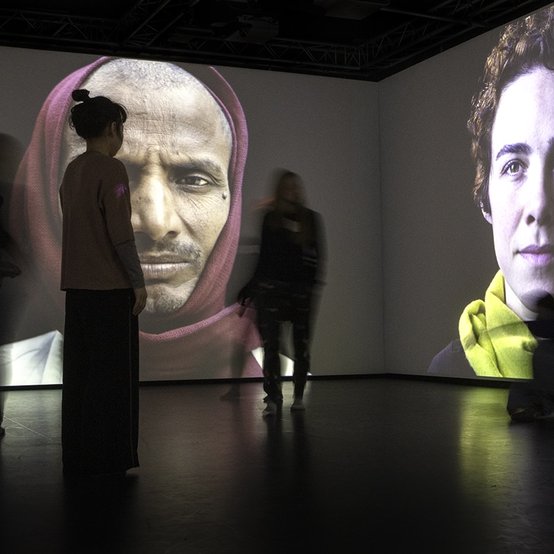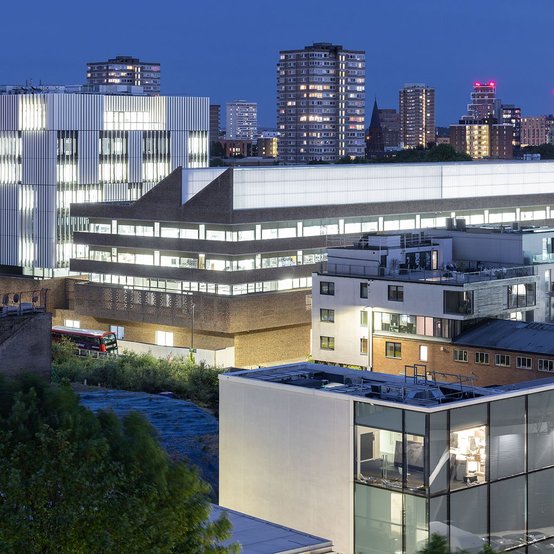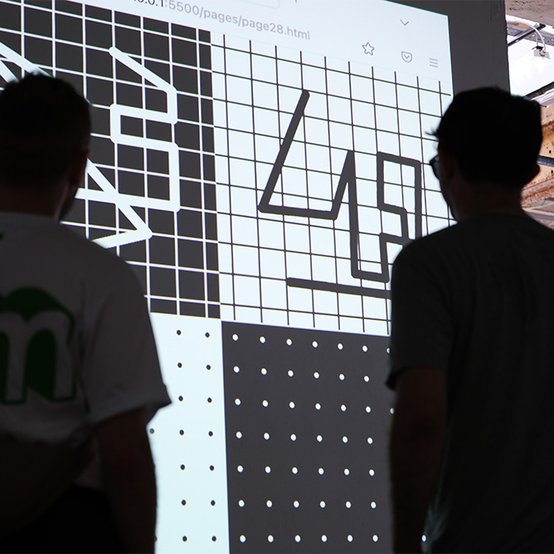
Overview
Join a vibrant research community
Key details
- Full-time or part-time study
School or Centre
Current location
- White City
Next open event
- 6 May 2025
- Join next Online Q&A Week
Next application deadline
- Applications closed, please check back soon
Career opportunities
- PhD study leads to a range of opportunities. You might become a researcher in industry or government or an academic in an international institution. It is an opportunity for you to investigate a research question or issue in depth, enabling you to take a more reflective, more innovative role in communication, design and media environments.
Our research degrees span the full range of communication, design and media environments.
Research is a rich, central and essential part of the School of Communication. Our MPhil and PhD degrees are grounded firmly in research theory and methods, while maintaining and encouraging a high degree of creativity and experimentation.
We welcome research projects that activate new kinds of knowledge formation; critically exploring, probing and creating ways to open dialogues on narratives and methods to positively change the terms of contemporary communication practices. Ours is a broad discipline ranging from, but not exclusive to, animation, experimental communication, sonic performance, media ecologies, intercultural communication, digital storytelling and immersive world building.
We look for critical engagement, originality and proven skills in both practice and writing, and encourage questioning and experimental research approaches. The research ethos of our community can be summed up as fostering an ethically alert approach to practices of communication that are inclusive, culturally informed, and historically aware. We bring theory and practice together to offer new ways of thinking about the world, at a time when alternative paradigms and criticality are essential to mobilising imagination and action for the future.
Programme details
- PhD: 3–4 years (full time), 6–7 years (part time)
- MPhil: 2–3 years (full time), 4–6 years (part time)
Catch the replays from our latest online Open Day.
View our current Research students' profiles
Applications are closed for our 2025 intake and will open in autumn for September 2026 entry. Register your interest to be the first to know when applications open.
Gallery
Staff
Facilities
The School of Communication is currently located in White City, London’s newest research and creative quarter.
View all facilitiesOur mixed-use studios encourage collaborative working, thought, awareness and action. In addition, you have access to craft and technical workshop areas and excellent technical support in the College.
Our alumni
Our alumni form an international network of creative individuals who have shaped and continue to shape the world. Click on each name to find out more.
Where will the RCA take you?
More details on what you'll study.
Find out what you'll cover in this programme.
What you'll cover
What is a research degree?
At the RCA we offer both MPhil and PhD research degrees. Research candidates can study in part-time and full-time modes (subject to approval) and their research can be undertaken by project or thesis modes. The mode of research will be discussed in the interview, and should be indicated in the application process.
A postgraduate research degree challenges you to complete a research project that pushes the boundaries of our understanding.
Unlike a taught degree, a research degree emphasises independence of learning and increased specialisation. You will manage your own research project in order to investigate your topic in depth and to produce new ideas, arguments and solutions.
A research degree will give you the subject matter expertise and transferable skills necessary for a wide range of senior roles in research and academia, as well as in business, industry and the cultural and creative sectors.
A PhD is awarded to students who produce a substantial piece of original research that makes a contribution to research in the field. This can take the form of a thesis (60,000–80,000 words) or by project (a body of work and thesis 25,000–40,000 words). If you’re a PhD candidate you’ll normally register for three years full-time, with submission within four years, or six to seven years part-time. You must remain registered and pay an appropriate fee until submission.
An MPhil is awarded for original research and submission of a thesis. If you’re an MPhil candidate you’ll normally be registered for two to three years full-time or four to six years part-time.
Our postgraduate community
We have more than 250 PhD students pursuing cutting-edge research and undertaking advanced training across the College:
- School of Architecture
- School of Arts & Humanities
- School of Communication
- School of Design
- Computer Science Research Centre
- Helen Hamlyn Centre for Design
- Intelligent Mobility Design Centre
- Material Futures Research Centre
- Robotics Laboratory
The RCA is a world-leading postgraduate university and is ranked the most research-intensive university of art and design in the UK since 2014. Both our students and staff are drawn from countries across the globe. Overseas students play a vital role in ensuring that our College community benefits from a diversity of experience and skills.
Doctoral training programme
At the RCA, research students undertake training both at a cross-College level and within their Schools/Centres, offering rich and robust preparation and learning opportunities for their research degree progression. Many of these also offer opportunities to build a portfolio of experience for future careers.
All students are required to attend and engage with our Doctoral Training Weeks in September, February and July. These are opportunities to participate in the broader research community at the RCA, but also to undertake timely training to support research progression. These intensive weeks include a range of professional development seminars, training and advice in writing, getting published, achieving impact, entering the academic job market and more, and opportunities for you to develop and present your research to your peers and staff.
Our Research Biennale, held every alternate February, offers a showcase of research to internal and external partners and public. The events include space for testing and experimenting with public-facing aspects of research, extending and challenging frameworks and perceptions of what art and design research can be.
We are committed to ensuring that you are well equipped, not only to complete your studies but also to develop your future careers.
Annual progress reviews
All research students have Annual Progress Reviews, which they must pass in order to progress into the next year of study. These are vital points where all candidates receive formal feedback not only from their supervisory team, but also from other members of the faculty.
There is a formal Confirmation Exam that takes place midway through the period of study to ascertain your readiness for PhD submission; if you do not meet the requirements at this stage then you’ll usually be recommended to submit for MPhil examination.
Requirements
What you need to know before you apply
The programme welcomes applications from candidates from across the world and of all ages, including those with academic and professional backgrounds.
Applications are considered in terms of quality of proposal, quality of practice (where appropriate), readiness to undertake a research degree at this level and supervisory capacity.
What's needed from you
Portfolio requirements
Your portfolio is a showcase of your work as an artist or designer and can be made up of images, videos or writing examples. Your portfolio helps us to better understand your application and allows you to show evidence of your ability and motivation to undertake a given programme.
Generally, we’re looking for you to demonstrate your:
- Creativity, imagination and innovation
- Ability to articulate the intentions of the work
- Intellectual engagement in areas relevant to the work
- Technical skills appropriate to the work
- Potential to benefit from the programme
Please submit a selected portfolio of work (no more than five examples) which clearly establishes and evidences your abilities in articulating research questions, methods, and approaches. This PDF portfolio may relate directly to your proposed research project, and/or be drawn from recent professional work (in which case, there should be an articulation of skills and an understanding of research processes).
Personal statement
Please provide a 300-word written personal statement that addresses the following points:
- Introduce yourself, your interests and your motivations for applying to the Royal College of Art, and to this programme in particular.
- Briefly summarise any educational background and professional experience to date that will support your application.
- Tell us what you want to do in the future.
Video requirements
We ask that you upload a two-minute video recorded on your phone or laptop, speaking to us directly. High production qualities are not needed. We will review the work in your portfolio, so keep your video simple.
Please tell us about your background and motivation for undertaking a PhD; and clearly state why your research should be situated within the RCA’s School of Communication. What do you bring to the research you are proposing (e.g. research expertise and/or professional experience) and tell us how the PhD will help you develop your future interests and aspirations. What might you offer the programme and broader research community? Briefly summarise your proposed research project keeping in mind we have read your application – and highlight your key motivations and aspirations for the research. What do you hope the research will contribute to the chosen field of study?
Research proposal
The research proposal is central to your application to undertake a research degree. As a description of your proposed topic, it should enable the selection panel to evaluate the scope and importance of your project. You should read the following guidelines carefully to ensure that your proposal includes the information we need to assess your application. The proposal should be up to 1,000 words in length, including a short bibliography.
The aim of the research proposal is to demonstrate that you have a project worth doing and that this is manageable within the timescale of the degree for which you are applying. To be worth doing, your project must be well-founded, and must also make a significant contribution to understanding in its field.
To make clear that your project is manageable within the relevant period, you need to show that you understand the scale of the issues and problems you are addressing.
Your proposal should include:
Title
A title summarising the proposed research. (This will be provisional at this point, and can change).
Introduction
Identify the field of study in broad terms and indicate how you expect your research to contribute to the field. Use this section to introduce the questions and issues central to your research.
Research background and questions
Use this section to expand your introduction:
- What are the key texts and approaches in the field, and how does your proposal differ from existing lines of argument?
- What does your project contribute to existing work in the field?
- How does it extend our understanding of particular questions or topics?
You need to set out your research questions as clearly as possible, explain problems that you want to explore and say why it is important to do so. In other words, think about how to situate your project in the context of your discipline.
Research methods
This section should set out how you will achieve what you propose. This will depend very much on your research topic.
- What resources will you use or need?
- Is your study interdisciplinary?
- What theoretical resources do you intend to use and why?
- What forms of textual, historical or visual analysis are relevant to your topic/field?
- What forms of practice will you use and why?
- How will you set about answering your research questions?
Schedule of work
Use this section to show that you have a realistic plan for completion of the study within three to four years (full time).
You might want to think here about dividing the proposal into sections (not necessarily chapters at this stage) and giving an indication of how you plan to research and write up each section.
Bibliography
Include a bibliography, in a standard format such as Harvard, listing the books and articles to which you refer in the proposal.
Some of these sections will be easier to write than others at this very preliminary stage. The selectors who read your proposal know that it is a provisional statement and that your ideas, questions and approaches will change during the course of your research. You should treat the proposal as an opportunity to show that you have begun to explore an important area of study and that you have a question, or questions, that challenge and develop that area. It is also necessary to demonstrate that you can express your ideas in clear and precise English, accessible to a non-specialist.
English-language requirements
If you are not a national of a majority English-speaking country, MPhil candidates will need the equivalent of an IELTS Academic score of 6.5 with a 6.5 in the Test of Written English (TWE). PhD candidates will need the equivalent of an IELTS Academic score of 7.0 with a 7.0 in the Test of Written English (TWE).
You are exempt from this requirement if you have received a 2.1 degree or above from a university in a majority English-speaking nation within the last five years.
If you need a Student Visa to study at the RCA, you will also need to meet the Home Office’s minimum requirements for entry clearance.
Fees & funding
For this programme
Fees for new students
Fees for September 2025 entry on this programme are outlined below. From 2021 onward, EU students are classified as Overseas for tuition fee purposes.
Home: High residency
Home: Low residency
Overseas and EU: High residency
Overseas and EU: Low residency
Deposit
New entrants to the College will be required to pay a non-refundable deposit in order to secure their place. This will be offset against the tuition fees for the first year of study.
Home
Overseas and EU
Progression discount
For alumni and students progressing to Postgraduate Research (PhD or MPhil) from an RCA MA, MA/MSc, MArch, MFA, MDes, MRes or MEd degree will receive a £1,000 progression discount per year (£500 per year for part-time study). If you change from full-time registration to part-time (or vice versa), then the fee reduction will be re-calculated and the maximum discount period is six years (excluding authorised leave of absence).
Continuation fees
Candidates who have completed the minimum three years of study (FT or 6 years PT) for PhD will be eligible to apply for Continuation Status. This is a period of study, for up to one academic year, during which a candidate will be focused upon revising and editing their thesis/project.
2024/25
Scholarships
RCA Scholarships
The RCA scholarship programme is growing, with hundreds of financial awards planned for the 2025/6 academic year.
For more information and examples of financial awards offered in 2024/25, visit the Scholarships & awards webpage.
You must hold an offer to study on an RCA programme in order to make a scholarship application in Spring 2025. A selection of RCA merit scholarships will also be awarded with programme offers.
We strongly recommend that you apply for your programme as early as possible to stand the best chance of receiving a scholarship. You do not apply directly for individual awards; instead, you will be invited to apply once you have received an offer.
More information
In addition to your programme fees, please be aware that you may incur other additional costs associated with your study during your time at RCA. Additional costs can include purchases and services (without limitation): costs related to the purchase of books, paints, textiles, wood, metal, plastics and/or other materials in connection with your programme, services related to the use of printing and photocopying, lasercutting, 3D printing and CNC. Costs related to attending compulsory field trips, joining student and sport societies, and your Convocation (graduation) ceremony.
If you wish to find out more about what type of additional costs you may incur while studying on your programme, please contact the Head of your Programme to discuss or ask at an online or in person Open Day.
We provide the RCASHOP online, and at our Kensington and Battersea Campuses – this is open to students and staff of the Royal College of Art only to provide paid for materials to support your studies.
We also provide support to our students who require financial assistance whilst studying, including a dedicated Materials Fund.
External funding
With the Government's introduction of the new Doctoral Loan and the continued support available via the Arts and Humanities Research Council, there are more financial support options than ever before.
Payments
Tuition fees are due on the first day of the academic year and students are sent an invoice prior to beginning their studies. Payments can be made in advance, on registration or in two instalments.
Ask a question
Get in touch if you’d like to find out more or have any questions.

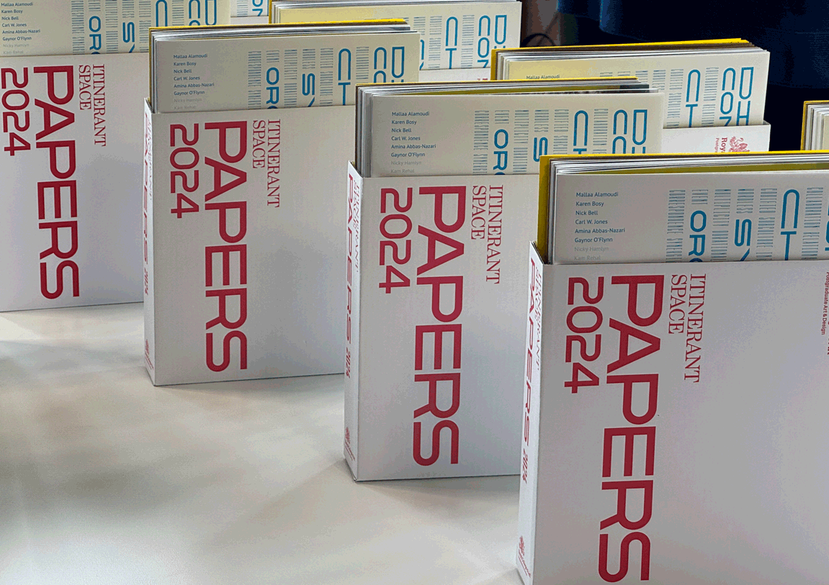
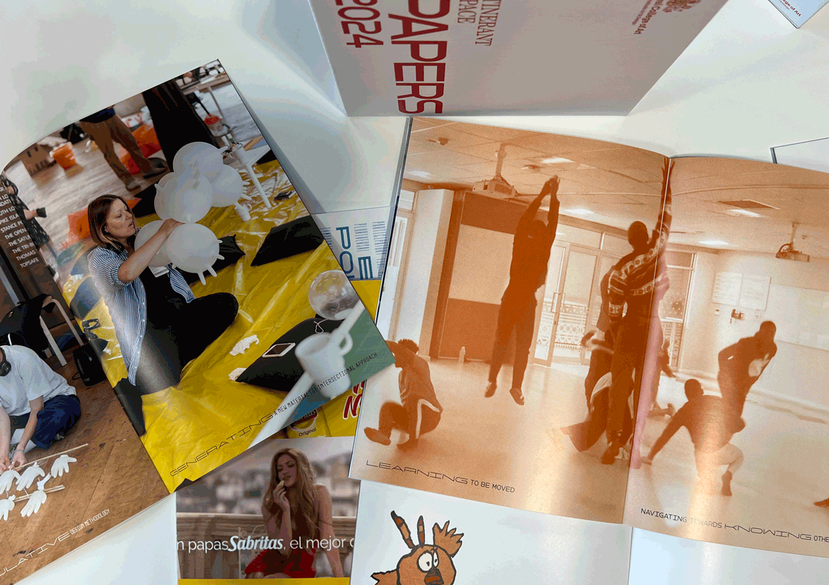
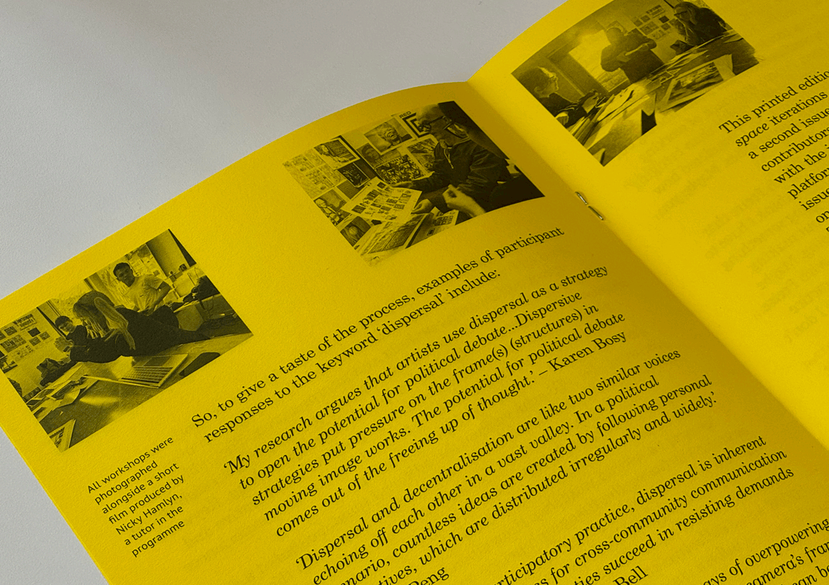
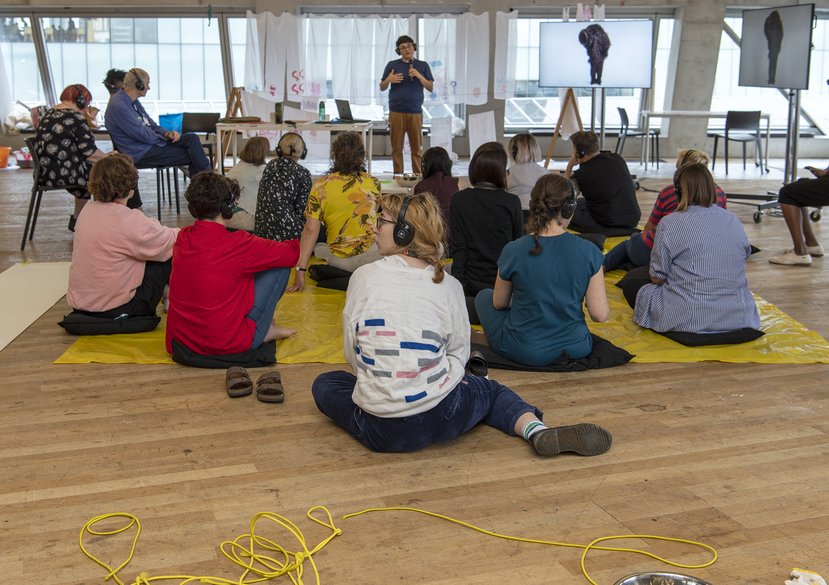
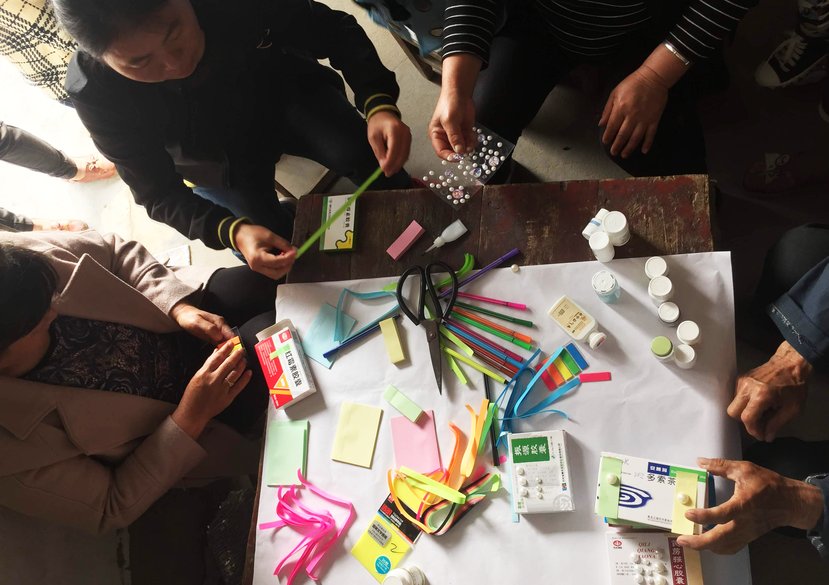
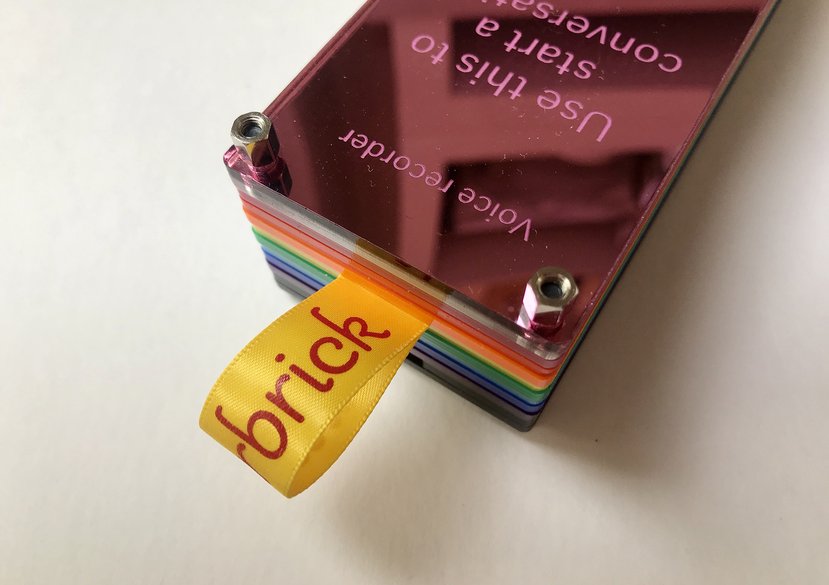
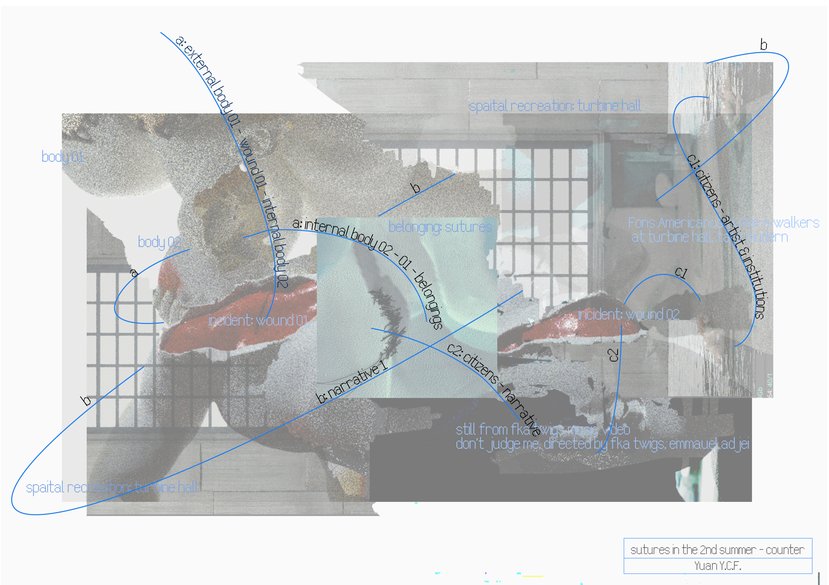
![Durational Act 3: tapping–beating [detail]. July 2022](https://rca-media2.rca.ac.uk/images/Kam_Rehal._durational_act_3.tappin.2e16d0ba.fill-829x585.jpg)
